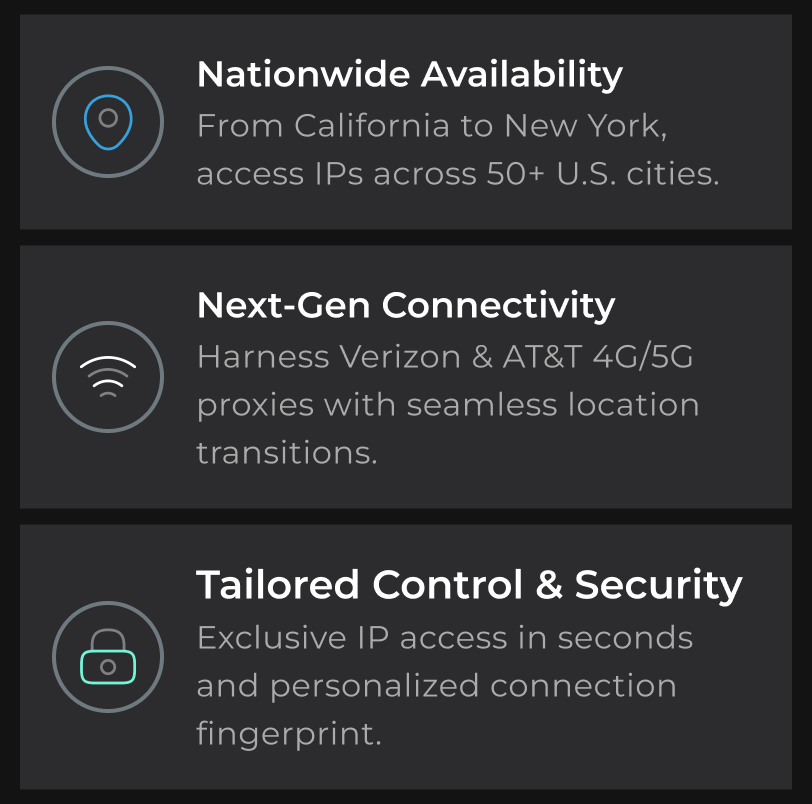The Benefits of Using a Proxy Server
- Improved Security: Proxy servers provide an additional security layer between your computer and the internet. By hiding your IP address, it makes it more difficult for hackers to target your device.
- Enhanced Privacy: Keep your browsing habits and personal information private. Proxy servers can anonymize your online activities, protecting your data from prying eyes.
- Access Restricted Content: Whether it’s geo-blocked websites or internet censorship, proxy servers can provide access to content that might otherwise be inaccessible.
- Savings on Internet Bandwidth and Speed: By caching web pages and files, proxy servers can reduce bandwidth usage and speed up loading times for frequently accessed resources.
The Need for Proxy Servers
The journey of internet privacy has seen significant transformations, evolving from the early days of complete anonymity to the sophisticated proxy and VPN solutions we rely on today. Initially, internet users enjoyed privacy simply due to the vast, uncharted digital landscape. However, the need for more advanced security measures became apparent as digital footprints became more traceable and data privacy concerns grew.
Enter the era of proxy servers and VPNs—technologies designed to protect individual identities and data online. These solutions offer a modern approach to internet privacy, allowing users to navigate the web securely and anonymously with the rise of cyber threats and data breaches. MobileHop stands at the forefront of this evolution, offering cutting-edge proxy and VPN services that cater to privacy-conscious individuals and businesses’ current needs. As we continue to navigate the digital age, MobileHop provides a safer online experience in the face of evolving cyber threats.
The Different Types of Proxy Servers
Navigating the proxy server landscape, one encounters a variety of types, each tailored for different online needs:
- HTTP Proxies: These proxies are best for accessing websites and interpreting and managing HTTP traffic.
- HTTPS Proxies: Enhance your security with SSL encryption for your web browsing, ensuring data protection.
- SOCKS Proxies: A versatile option that supports any traffic, ideal for applications beyond web browsing.
- Transparent Proxies: These proxies are used mainly for administrative control and content filtering without concealing your IP.
- Anonymous Proxies: Prioritize your privacy by hiding your IP address from websites, a step up in online anonymity.
- High Anonymity Proxies: Offer the highest level of privacy by regularly changing the IP address presented to websites, making user tracking virtually impossible.
Each proxy type serves a purpose, from enhancing security and privacy to facilitating unrestricted access to the digital world.
How Proxy Servers Enhance Internet Security
Enhancing internet security in an era of increasing cyber threats is crucial, and the role of proxy is indispensable in this mission. Proxy servers offer a shield, encrypting your internet connection and cloaking your IP address to safeguard against unauthorized access and data breaches.
This dual function ensures your digital anonymity and secures your data from potential cyber espionage. The ability of proxy servers to filter out malicious content further bolsters your defenses, making your online experience both safe and private. Check out our projects to further explore how proxy servers can upgrade your internet security.
Proxy Servers in the Workplace
Leveraging how proxy servers work within a business context offers a multitude of benefits, from bolstering security protocols to refining network efficiency:
- Optimized Network Usage: Proxies can dramatically reduce bandwidth consumption and improve employee website load times.
- Advanced Security Features: Implementing proxy servers enhances your defense against cyber threats and safeguards company data.
- Controlled Internet Access: They allow for the monitoring and restriction of web access, aligning with company policies and productivity goals.
- Unlocking Geo-specific Content: Proxies provide access to information and services limited by geography, essential for businesses operating on a global scale.
Integrating proxy servers into your company’s IT infrastructure secures your digital assets and streamlines your network’s performance.

FAQs About Proxy Servers
Navigating proxy servers can spark numerous questions, from understanding their fundamental workings to recognizing their benefits. Here are some of the most common queries to demystify the concepts of proxy servers and VPNs, offering clear, concise answers to enhance your knowledge. Whether you’re a seasoned tech enthusiast or new to online security, we provide the insights to make informed decisions about safeguarding your digital life.
How Does a Proxy Server Work?
What's the Difference Between a Proxy and a VPN?
While both proxies and VPNs serve to enhance your online privacy, a VPN encrypts all your internet traffic, whereas a proxy works on a per-application basis. VPNs tend to offer a higher level of security and privacy.
Can I Use a Proxy Server on All Devices?
Yes, proxy servers are versatile and can be configured on most devices and browsers, offering flexibility in maintaining your online privacy across different platforms.
Are All Proxy Servers the Same?
No, there are different types of proxy servers, including HTTP, HTTPS, SOCKS, and more, each designed for specific use cases and offering varying levels of anonymity and security.
Do Proxy Servers Prevent All Cyber Threats?
While proxy servers significantly enhance your online security by hiding your IP address and potentially encrypting data, they should be part of a broader cybersecurity strategy that includes antivirus software and secure browsing practices.
Boost Your Online Security and Privacy with MobileHop
Upgrade your online privacy and security effortlessly with MobileHop’s range of proxy and VPN services. Discover our offerings and find the perfect solution tailored to your security needs. Choose your service, and with just a few clicks, you’ll be plugged into secure, unrestricted internet access. Safeguard your digital life with our services and discover a safer online experience. With MobileHop, comprehensive online security is right at your fingertips.





